Baseball History Comes Alive Now Ranked #2 by Feedspot Among All Internet Baseball History Websites and Blogs!
Guest Submissions from Our Readers Always Welcome!
Subscribe to Baseball History Comes Alive! to receive new posts automatically
Lou Gehrig Photo Gallery
Click on any image below to see photos in full size and to start Photo Gallery:
Baseball’s Gettysburg Address: The Lou Gehrig “Luckiest Man” Speech, July 4, 1939
Amidst all the Fourth of July celebrations today, all baseball history fans (like us!) should take a few minutes to reflect upon the anniversary of one of the most memorable – yet saddest – days in baseball history. It occurred 79 years ago today on “Lou Gehrig Appreciation Day,” at Yankee Stadium between games of a Yankees-Senators doubleheader: Lou Gehrig’s “Luckiest Man” Speech.
To honor the occasion, check out the beautiful painting above by Graig Kreindler. Be sure to click on the image to see all the wonderful detail.
Lou Gehrig was never known for his eloquence. A magnificent hitter? For sure. Yet in fewer than 300 words, the ailing Gehrig somehow managed to deliver one of the most moving and memorable speeches in American culture – what I call the “Baseball’s Gettysburg Address.” It was composed the night before by Lou with help from his wife, Eleanor. There were 61,808 fans in attendance that day, including New York Mayor Fiorello LaGuardia, Postmaster General James Farley, and teammates from the 1927 Yankees. There is no known intact film of Gehrig’s speech; only a small snippet of the newsreel footage. So in order to fully appreciate the impact of this beautiful oration, I thought it would be a good idea to post the entire text: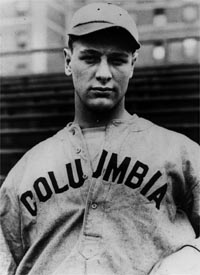
“Fans, for the past two weeks you have been reading about the bad break I got. Yet today I consider myself the luckiest man on the face of the earth. I have been in ballparks for seventeen years and have never received anything but kindness and encouragement from you fans.”
“When you look around, wouldn’t you consider it a privilege to associate yourself with such fine looking men as are standing in uniform in this ballpark today? Sure, I’m lucky. Who wouldn’t consider it an honor to have known Jacob Ruppert? Also, the builder of baseball’s greatest empire, Ed Barrow? To have spent six years with that wonderful little fellow, Miller Huggins? Then to have spent the next nine years with that outstanding leader, that smart student of psychology, the best manager in baseball today, Joe McCarthy? Sure, I’m lucky.”
“When the New York Giants, a team you would give your right arm to beat, and vice versa, sends you a gift—that’s something. When everybody down to the groundskeepers and those boys in white coats remember you with trophies—that’s something. When you have a wonderful mother-in-law who takes sides with you in squabbles with her own daughter—that’s something. When you have a father and a mother who work all their lives so that you can have an education and build your body—it’s a blessing. When you have a wife who has been a tower of strength and shown more courage than you dreamed existed—that’s the finest I know.”
“So I close in saying that I might have been given a bad break, but I’ve got an awful lot to live for. Thank you.”
After Gehrig delivered the speech, the stunned crowd stood and applauded for almost two minutes. Lou was visibly shaken as he stepped away from the microphone and wiped tears away from his face with his handkerchief as Babe Ruth came over and hugged him. The New York Times called it “One of the most touching scenes ever witnessed on a ball field.” It was said that even hard-boiled reporters had to “swallow hard.”
Here’s a beautiful description of the speech written by Richard Sandomir found on the “Sports On Earth” web site:
“No longer a magnificent ballplayer, he was a dying young man, grateful for his life, not complaining about his limited future. He gave them the essential Gehrig: no different than the decent man he had always been, but now faced with altered circumstances. He did not sound like a professional speaker. He lacked a baritone like Gary Cooper, the actor who played him in The Pride of the Yankees, which made Gehrig’s speech so much more effective. Gehrig simultaneously became a symbol of courage and the soul of the Yankees’ cold-as-steel empire. Had he died in 1971, not 1941, he would have been recalled for his statistics and humility. But by offering nothing but gratitude, for a life that would end two years later, days before his 38th birthday, he was canonized a sports saint.”
Very well said…
Gary Livacari
Photo Credits: Featured picture is a painting by Graig Kreindler; Others from Google search.
Information: Excerpts and quote edited from the article “Words to Remember,” found on the Sports on Earth website; and from the Lou Gehrig Wikipedia page.
Check out my two books, both now available on Amazon in e-book and paperback: “Paul Pryor in His Own Words: The Life and TImes of a 20-Year Major League Umpire” and “Memorable World Series Moments.” All profits go to the Illinois Veterans Foundation
We are a participant in the Amazon Services LLC Associates Program, an affiliate advertising program designed to provide a means for us to earn fees by linking to Amazon.com and affiliated sites. Click here to view Amazon’s privacy policy
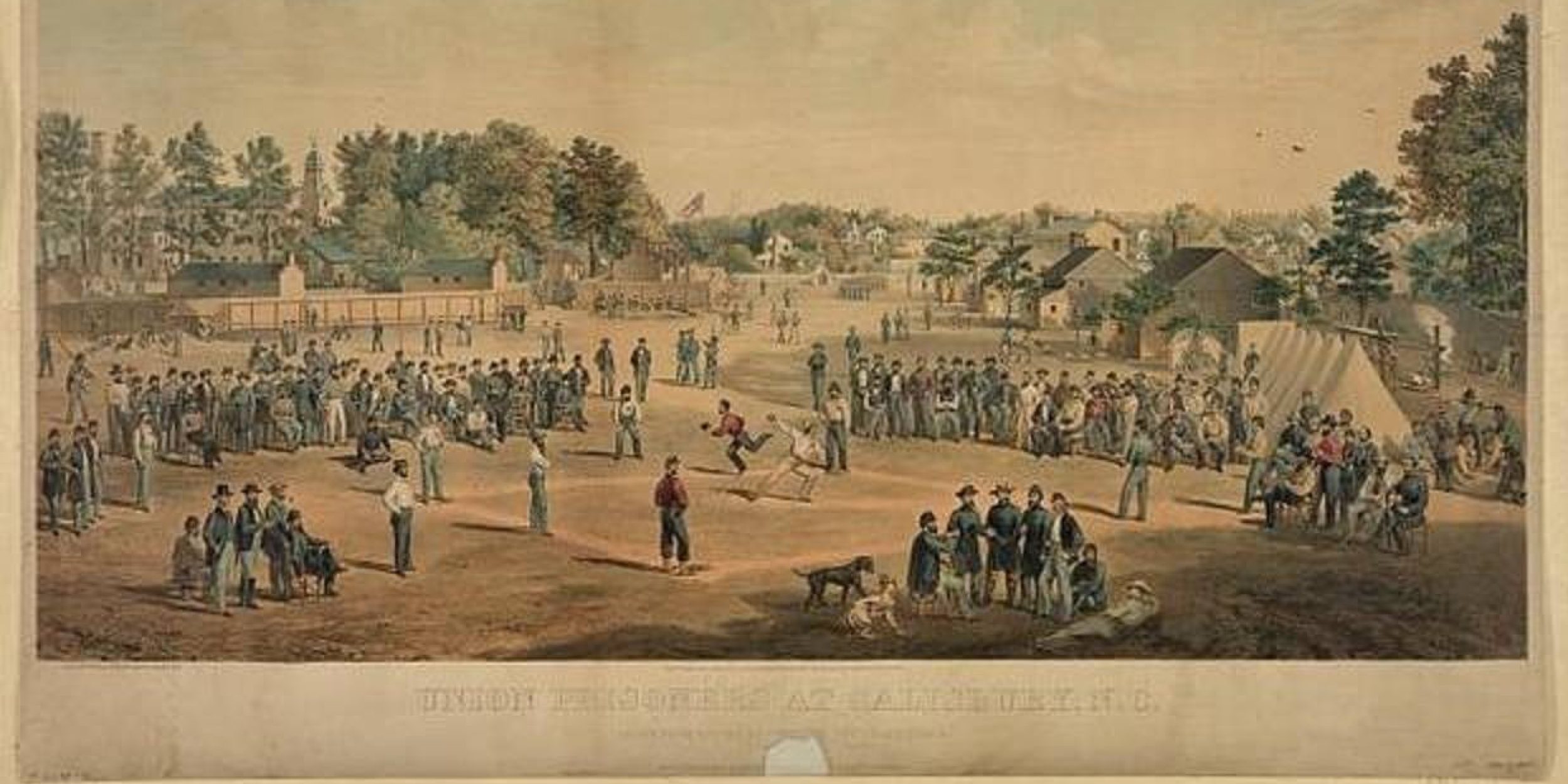
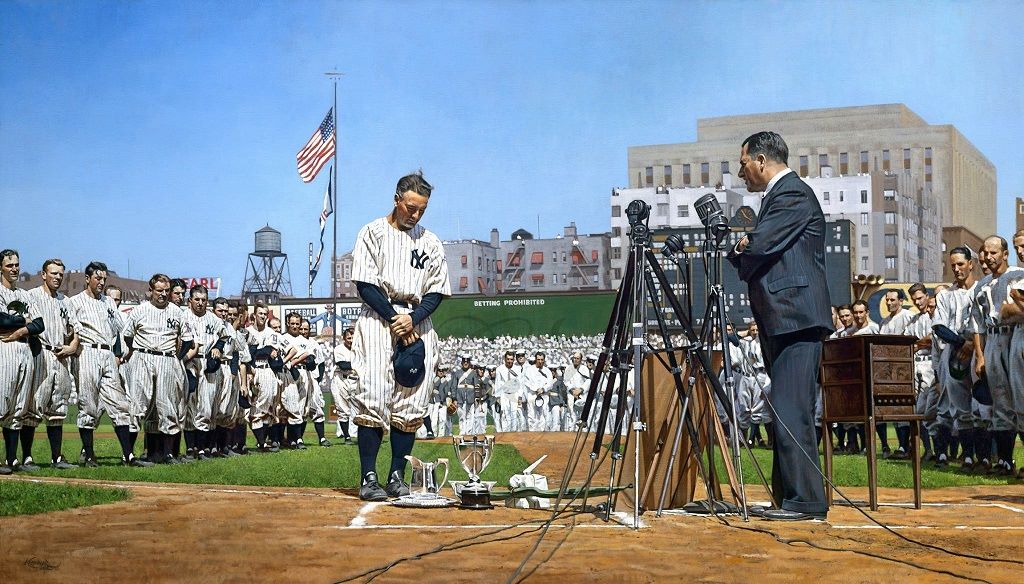
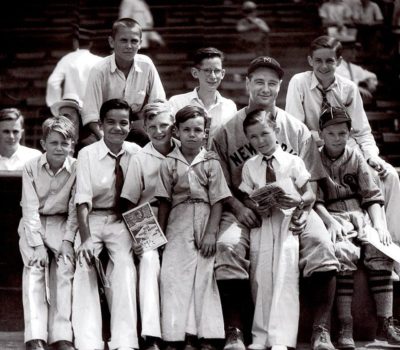
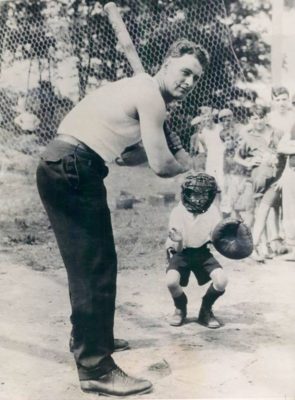
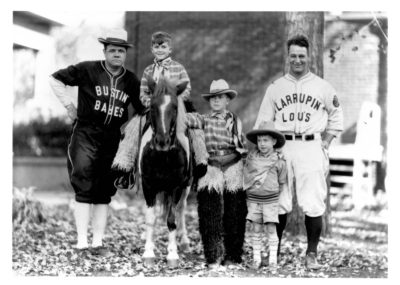
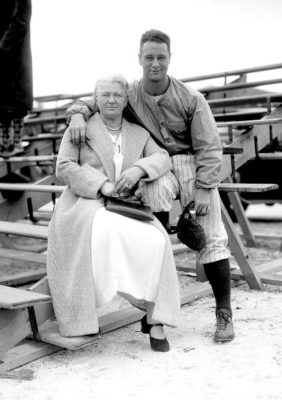
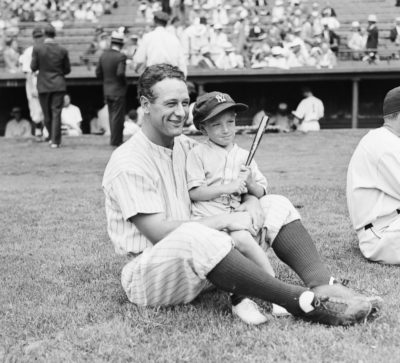
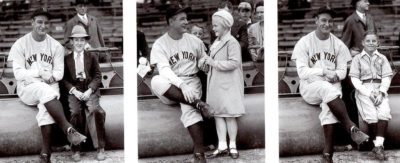
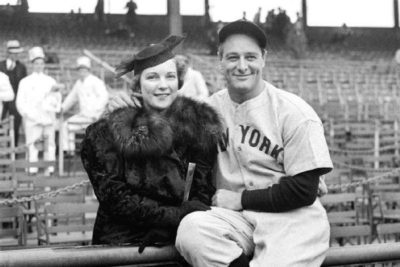
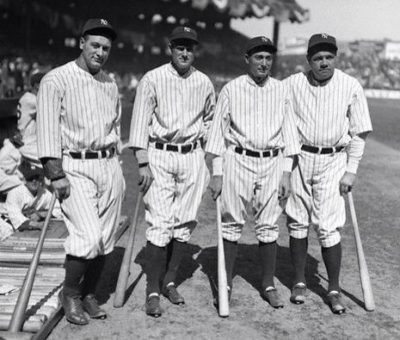
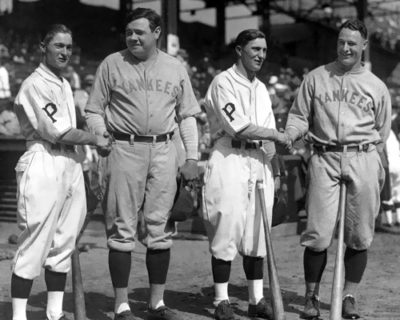
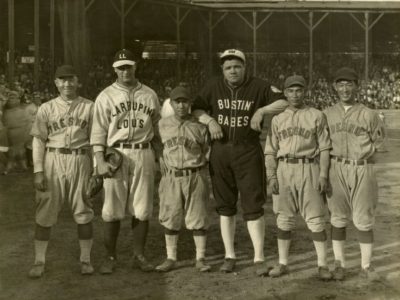
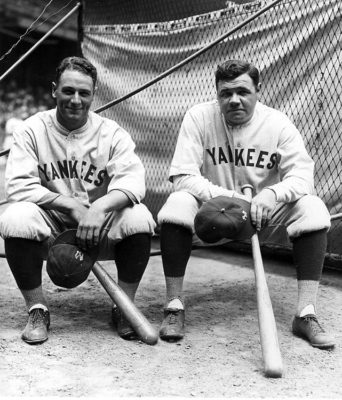
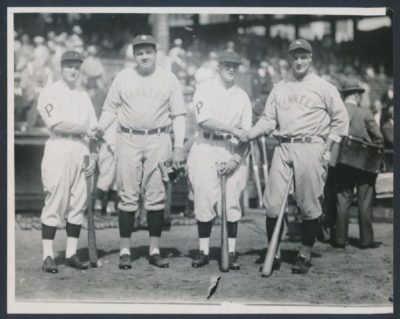
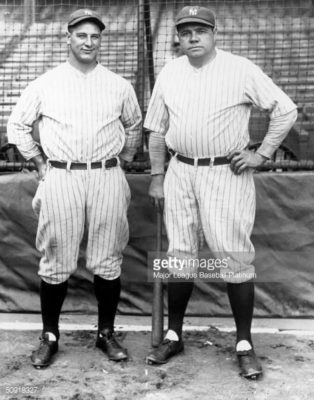
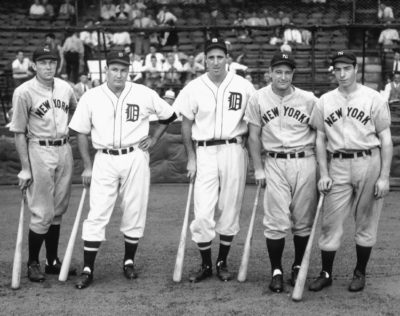
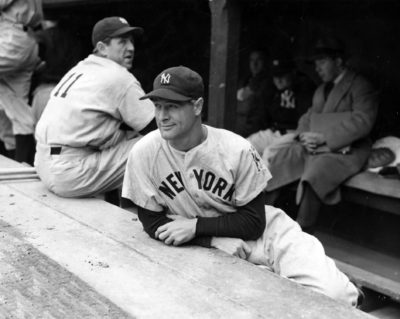
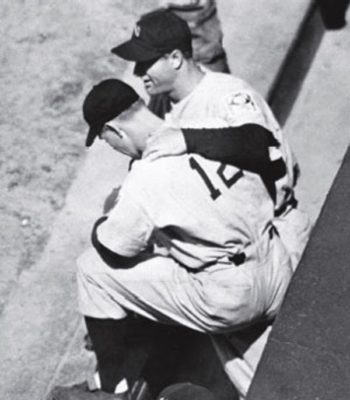
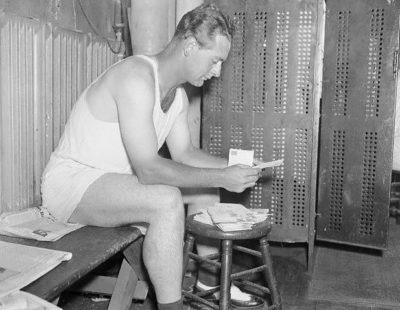
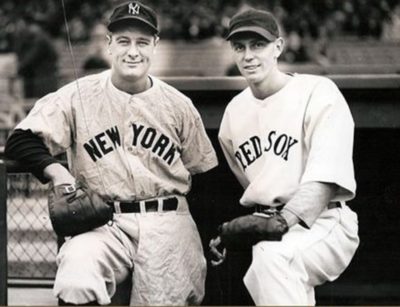
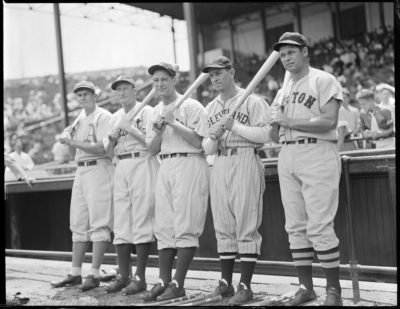
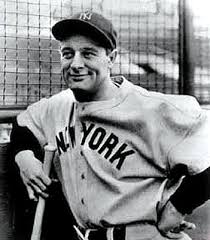
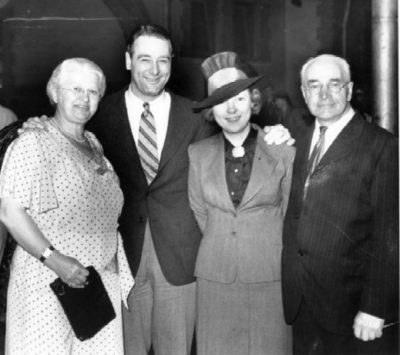
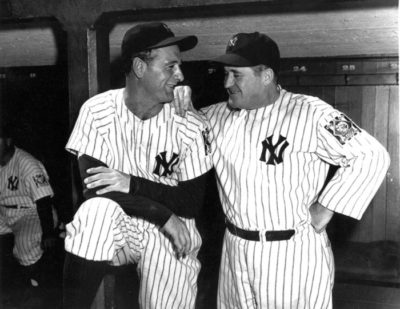
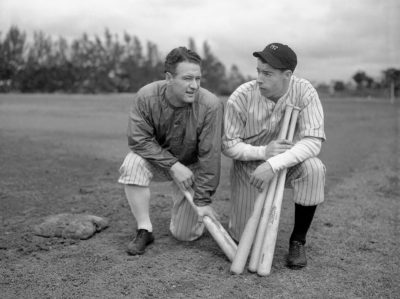
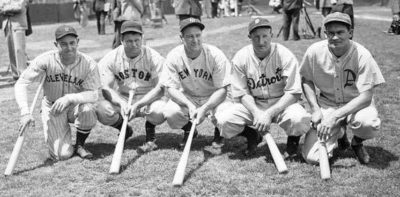
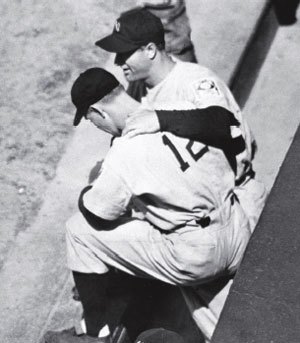
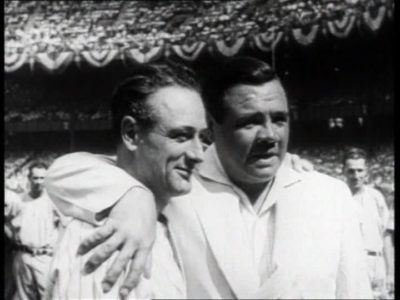
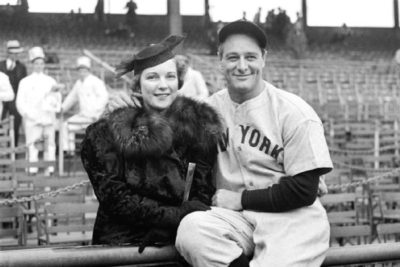
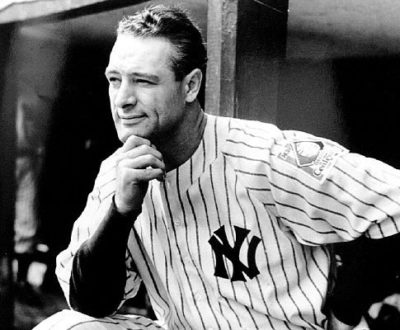
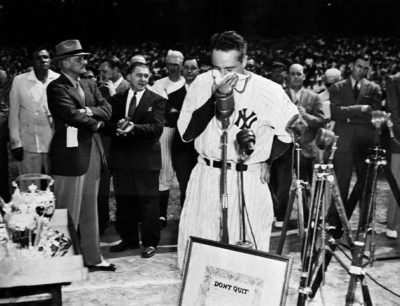
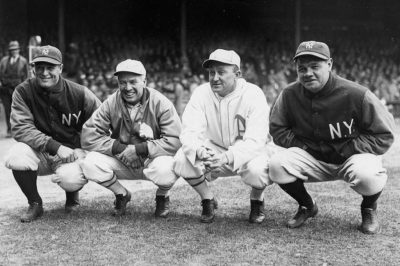
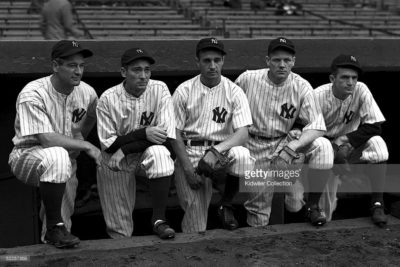
Here’s question that’s been eating at me for a few years.
There’s evidence that Gehrig’s with requested that doctors not tell him his prognosis.
At what point did they actually tell him?
Do you think, for hypothetical sake, he really thought in 1939 he could come back.
He often referred to it as a “bug” as if was something to get over.
Thoughts.
If I remember correctly from Eleanor Gehrig’s book, she and the doctors always tried to keep him upbeat and positive. She was always telling him he would “beat it” with the help from his great doctors. That was his mind-set until the end. I don’t know if they ever told him it was fatal or if he came to realize it himself. I don’t think he planned a comeback, but I do think from reading that book that he thought he would eventually overcome the disease.
That’s how I took it. However, history paints it as if he was starring straight into death, but, he really had a thought overcoming. (SORRY FOR SUCH A LONG DELAY. I never saw this till now. Apparently didn’t have notifications on).
With my amyotrophic lateral sclerosis (ALS), the first thing that happened almost 2 years ago now, was speaking as if I were drunk. I wasn’t. I initially did improve speech (articulating clearly but slow) but now I can no longer speak in an acceptable way. Then, a year later eating became problematic, I was biting my tongue and lips, and chewing became weak and less controlled. Soon after that some fingers started to fail me and things would drop out of my hands. Somewhere at that time bulbar ALS was diagnosed. The Rilutek (riluzole) did very little to help me. The medical team did even less. My decline was rapid and devastating.. We tried every shot available but nothing was working. There has been little if any progress in finding a reliable treatment, Our care provider introduced us to Kycuyu Health Clinic ALS/MND herbal treatment. The treatment is a miracle.i recovered significantly